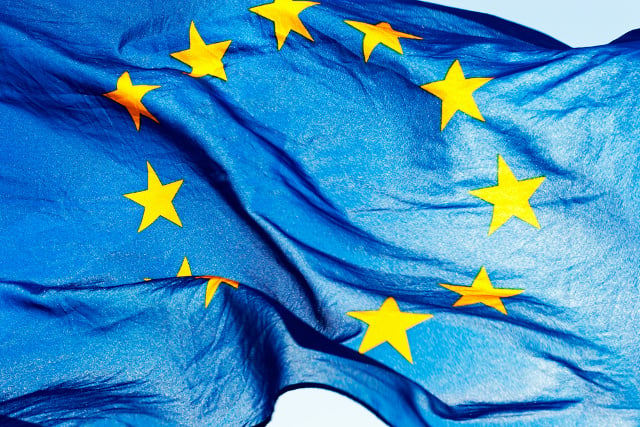EUROPEAN UNION
Free movement with EU has boosted Swiss job market: report
Switzerland’s bilateral agreement with the European Union allowing the free movement of people has increased the number of highly-skilled jobs in the country and reoriented the Swiss economy towards high-value activity.
Published: 5 July 2017 11:01 CEST

Photo: wlad74/Depositphotos
That’s the conclusion of the Swiss secretariat for economic affairs (Seco) in a report reflecting on 15 years of free movement.
The alpine country signed the bilateral accord with the EU in 1999 and it came into affect three years later, on June 1st 2002.
The agreement allows citizens of the EU to live and work in Switzerland – and vice versa – mutually recognizing professional qualifications, granting the right to buy property and coordinating social insurance systems.
Despite the turbulent economic times in recent years, Switzerland “has experienced very favourable economic development and sustained growth in jobs over the last 15 years in comparison with the international picture,” Seco said in a report on Tuesday.
During this period the job market has risen sharply, notably in high-level fields, leading to a sustained demand for highly-skilled labour.
“EU immigrants have contributed to this structural change; today they represent a large part of the workforce in professions requiring the highest level qualifications,” it said.
Since a more prosperous and larger population requires more goods and services, job sectors including construction, transport, training and healthcare have increased, added Seco.
The growth in public-sector jobs has benefited native Swiss workers, it said. In other service sectors such as construction, foreigners have been able to fill the gap as the number of available Swiss workers drops off due to a general rise in their qualification level.
“The development of the employment market over the last 15 years suggests that immigration has, on the whole, positively complemented the potential of the domestic workforce,” it said.
Immigration hasn’t led to increased unemployment among Swiss workers. In fact, it’s foreigners who are more likely to face unemployment, concluded Seco.
People from southern and eastern EU nations experience higher than average rates of unemployment, mainly because immigrants from these regions are more present in sectors where job conditions are unstable.
Salaries have increased by 0.8 percent on average per year, with even the lowest-paid jobs experiencing salary growth.
Reduced numbers
Despite Seco’s positive picture, immigration from the EU has gone down noticeably since 2013, it said.
The migratory balance – the number of arrivals minus the number of departures – was down 27 percent to 35,000 in 2016.
The reduction in the number of immigrants from Spain, Portugal and Germany has been particularly marked, mainly because unemployment rates in those countries have gone down.
However French and Italian workers are still coming to Switzerland and also make up the majority of ‘frontaliers/frontalieri', as cross border workers are known.
In contrast, immigration from Romania and Bulgaria has gone up considerably, a result of free movement being fully extended to those countries on June 1st 2016.
In 2016 about 30 percent of EU immigrants came from eastern European countries, said Seco.
Political issue
Immigration has been a political hot potato in Switzerland in recent years, since the country in 2014 voted in favour of a popular initiative to curb immigration.
The success of the initiative, which contravened the free movement agreement, threw relations between Switzerland and the EU into disarray.
After more than two years of debate in the Swiss parliament, the government decided not to fully implement the anti-immigration initiative, preferring to preserve free movement and its relationship with the EU.
But the saga is not over, as an anti-immigration group backed by the political right has already expressed its intention to launch a campaign for a referendum to quash free movement altogether.
READ ALSO: How to do business like the Swiss
Url copied to clipboard!


 Please whitelist us to continue reading.
Please whitelist us to continue reading.
Member comments